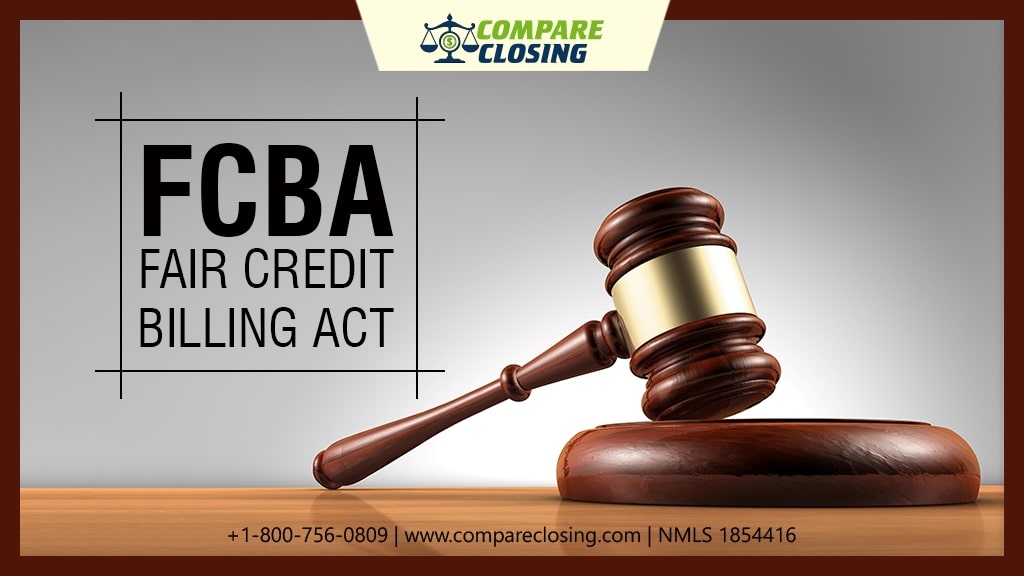Table of Contents
- What Are Netting Escrows & How Does It Work?: The Best Guide - January 2, 2024
- The Secret About Prescriptive Easement: Top Guide 1 Must Know - December 4, 2023
- About Home Equity Loans In Texas And How Can One Obtain It - November 27, 2023
About Fair Credit Billing Act (FCBA)
When it comes to acquiring credit or loans, you as a consumer also have some rights that you need to be aware of.
There are many laws that a bank, lender, or financial institution has to follow for providing credit for their consumers.
One such law is Fair Credit Billing Act, and in this post, we will understand what is a Fair Credit Billing Act in detail.
What Is A Fair Credit Billing Act (FCBA)?
The FCBA of 1974 is a federal law that originated to stop unfair credit billing practices.
This act was amended from the Truth in Lending Act. It sets out guidelines available to creditors and consumers to resolve disputes about billing mistakes.
These mistakes include statements sent to the incorrect address, errors in calculation, charges without authorization, and fees charged for items or services that clients bought but did not receive.
FCBA protects consumers from billing errors on “open” or revolving accounts. These include HELOCs, charge cards, and credit cards.
However, the law does not apply to loans on installments, such as car loans, that give you a fixed amount of time to repay the loan.
How Does The Fair Credit Billing Act Work?
Under the FCBA, consumers and lenders have certain obligations while disputing a billing error.
The law only applies to accounts linked to credit cards and revolving payment cards. It does not apply to installment loans such as those used to buy furniture or cars.
The process of dispute begins when the consumer notices an error on the invoice statement.
The consumer must notify the lender or the bank in writing within 60 days after the lender sends the first statement that had a billing error.
The notice must include your name, your address, your account information, information of the error in dispute, and purchase receipt or other paperwork.
This notice must be sent to the bank or lender’s address for “billing inquiries” and not to the address where you usually send your payments. You must send it by registered mail for proof of delivery else you may lose the legal standing for your claim.
After you submit your notice, the lender or the bank will start the dispute investigation process.
During this process, you are allowed to avoid paying for the disputed charges and related fees. However, you are required to pay the charges that are not being disputed on that credit account.
The bank or the lender must respond to you within 30 days after receipt of the notice of dispute and explain how they intend to resolve the issue.
According to the FCBA, the bank or the lender needs to correct the issue within the next two billing cycles and provide a letter mentioning their findings at the end of the investigation.
If your claim was proved to be incorrect, the bank or the lender must state the reason for the same with the final amount to be paid by you.
If the borrower is not responsible for the disputed errors, the creditor must inform in detail what will be done to correct the error.
What Are Types Of Disputes Covered Under Fair Credit Billing Act?
Here are a few types of disputes covered by the FCBA law:
- Incorrect date or Amount for the charges
- Charges that require an explanation or proof from the consumer
- Incorrect service or product delivered post charges
- Errors in calculation
- Unauthorized charges
- Statements were sent to the incorrect mailing address
- Service or Product not delivered post charges
The Federal Trade Commission (FTC) is the primary agency that overlooks the FCBA.
Conclusion
You might already be using the FCBA right to dispute charges with your credit card company or your lender and are unaware of the law.
It is good to have information about what rights you have under FCBA law so that you can dispute and claim amounts charged in error on your accounts and save your money.
Amanda Byford
Amanda Byford has bought and sold many houses in the past fifteen years and is actively managing an income property portfolio consisting of multi-family properties. During the buying and selling of these properties, she has gone through several different mortgage loan transactions. This experience and knowledge have helped her develop an avenue to guide consumers to their best available option by comparing lenders through the Compare Closing business.





